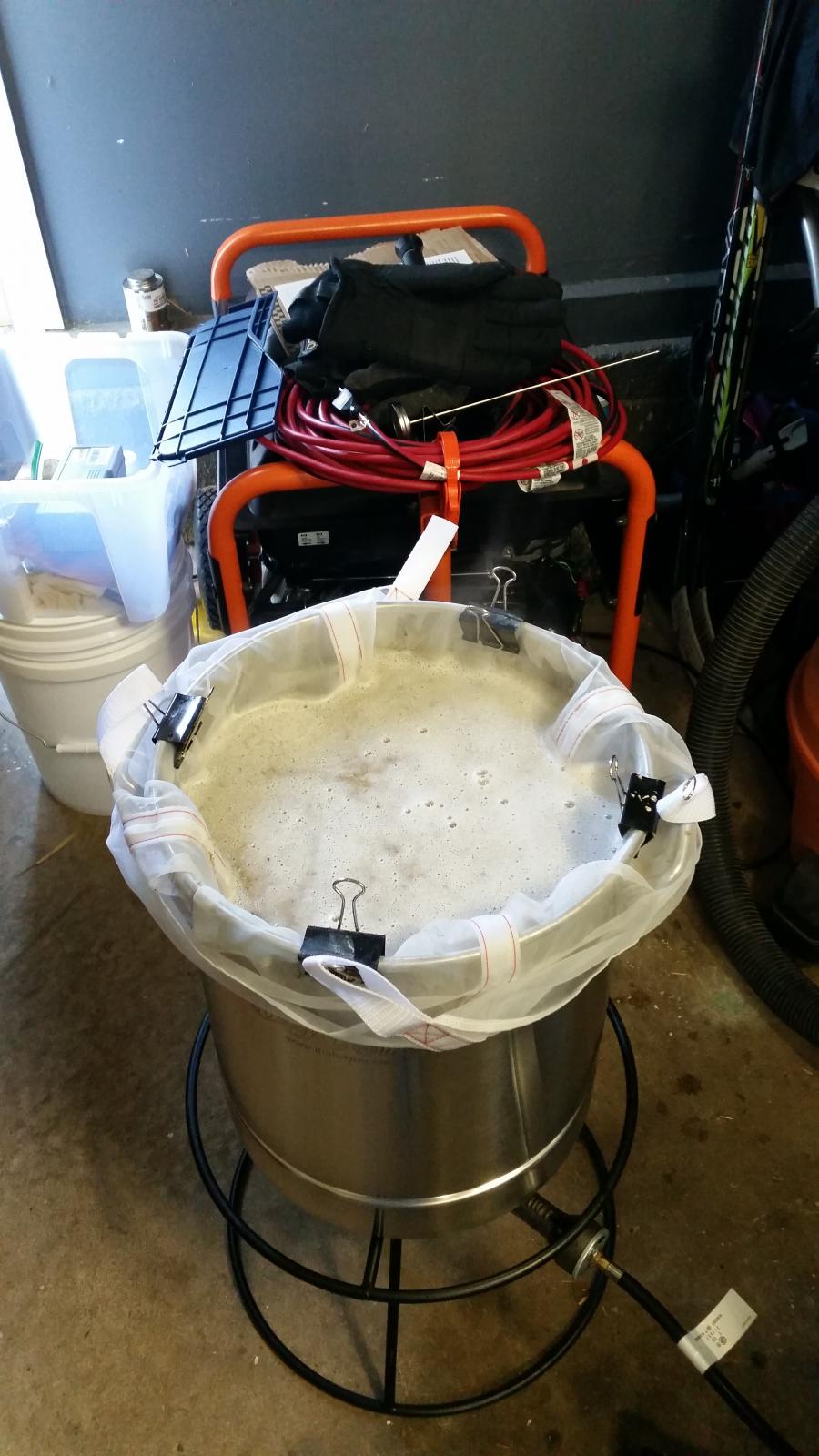AngryAndy
Well-Known Member
Hi, I've been extract brewing for about 4 years. I'm finally making the switch to all grain. I have a few questions and was looking for a bit of direction:
1) Should i use a biab calculator like http://biabcalculator.com/ to determine my pre water, strike and mash temps?
2) To sparge or not to sparge? I gotta figure sparging will raise alcohol levels and probably help with efficiency. So my plan was to mash in my 10gal pot on a propane burner in the garage. Then raise the temp, mash out (as per directions/ like 170F) and then raise the bag out of the pot using a pulley mounted my ceiling. Should I just let it drain or sparge? And if I sparge do I just use a small bucket, collect wort from my mash kettle water and gentle pour it over the bag? And if so, how long do I do that? Or skip the whole process and just raise the bag, drain and toss it out?
3) When it comes to mashing should I hit my mash temperature, put a lid on and let it mash for the recommended time. Or should I reach the mash temp and house the kettle in an insulated container? In other words, will the kettle drop its temp too quickly just sitting on my propane burner outside. I was thinking of taking a brand new garbage can and lining it with a blanket and placing the mash kettle in there for the 60 minutes.
4) Lastly, can I order any old All-Grain-Kit like this one: https://www.ontariobeerkegs.com/OBK_Abbey_Ale_All_Grain_Beer_Recipe_Kit_p/grainkit-abbey-ale.htm
and do BIAB? Or is there All-Grain-Kits specifically made for BIABer's?
Again any help here would be awesome. I'm fairly familiar with the process but these questions are keeping me up at night.
Best regards,
Andy
1) Should i use a biab calculator like http://biabcalculator.com/ to determine my pre water, strike and mash temps?
2) To sparge or not to sparge? I gotta figure sparging will raise alcohol levels and probably help with efficiency. So my plan was to mash in my 10gal pot on a propane burner in the garage. Then raise the temp, mash out (as per directions/ like 170F) and then raise the bag out of the pot using a pulley mounted my ceiling. Should I just let it drain or sparge? And if I sparge do I just use a small bucket, collect wort from my mash kettle water and gentle pour it over the bag? And if so, how long do I do that? Or skip the whole process and just raise the bag, drain and toss it out?
3) When it comes to mashing should I hit my mash temperature, put a lid on and let it mash for the recommended time. Or should I reach the mash temp and house the kettle in an insulated container? In other words, will the kettle drop its temp too quickly just sitting on my propane burner outside. I was thinking of taking a brand new garbage can and lining it with a blanket and placing the mash kettle in there for the 60 minutes.
4) Lastly, can I order any old All-Grain-Kit like this one: https://www.ontariobeerkegs.com/OBK_Abbey_Ale_All_Grain_Beer_Recipe_Kit_p/grainkit-abbey-ale.htm
and do BIAB? Or is there All-Grain-Kits specifically made for BIABer's?
Again any help here would be awesome. I'm fairly familiar with the process but these questions are keeping me up at night.
Best regards,
Andy












![Craft A Brew - Safale BE-256 Yeast - Fermentis - Belgian Ale Dry Yeast - For Belgian & Strong Ales - Ingredients for Home Brewing - Beer Making Supplies - [3 Pack]](https://m.media-amazon.com/images/I/51bcKEwQmWL._SL500_.jpg)














































